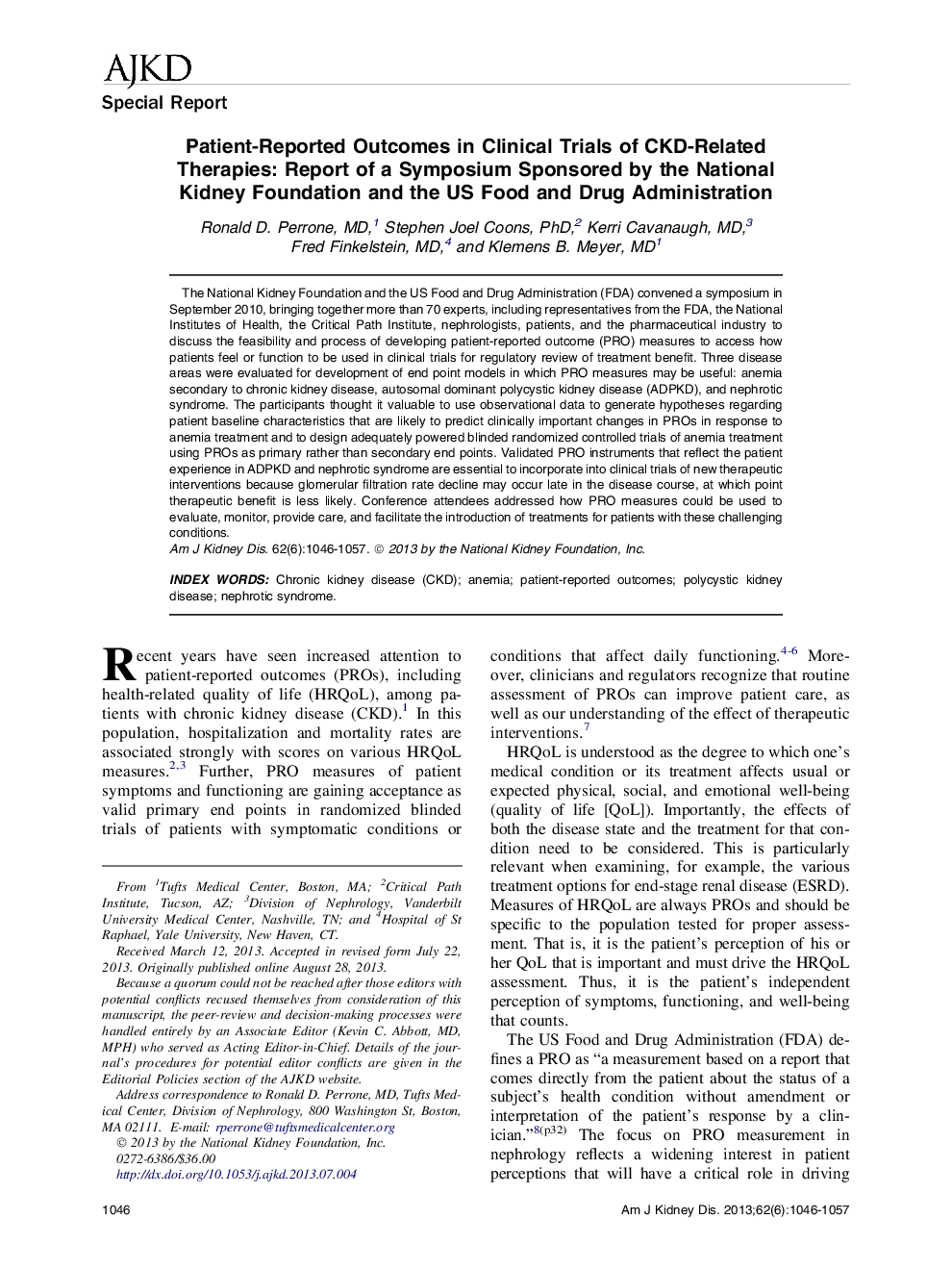| Article ID | Journal | Published Year | Pages | File Type |
|---|---|---|---|---|
| 3848315 | American Journal of Kidney Diseases | 2013 | 12 Pages |
Abstract
The National Kidney Foundation and the US Food and Drug Administration (FDA) convened a symposium in September 2010, bringing together more than 70 experts, including representatives from the FDA, the National Institutes of Health, the Critical Path Institute, nephrologists, patients, and the pharmaceutical industry to discuss the feasibility and process of developing patient-reported outcome (PRO) measures to access how patients feel or function to be used in clinical trials for regulatory review of treatment benefit. Three disease areas were evaluated for development of end point models in which PRO measures may be useful: anemia secondary to chronic kidney disease, autosomal dominant polycystic kidney disease (ADPKD), and nephrotic syndrome. The participants thought it valuable to use observational data to generate hypotheses regarding patient baseline characteristics that are likely to predict clinically important changes in PROs in response to anemia treatment and to design adequately powered blinded randomized controlled trials of anemia treatment using PROs as primary rather than secondary end points. Validated PRO instruments that reflect the patient experience in ADPKD and nephrotic syndrome are essential to incorporate into clinical trials of new therapeutic interventions because glomerular filtration rate decline may occur late in the disease course, at which point therapeutic benefit is less likely. Conference attendees addressed how PRO measures could be used to evaluate, monitor, provide care, and facilitate the introduction of treatments for patients with these challenging conditions.
Keywords
Related Topics
Health Sciences
Medicine and Dentistry
Nephrology
Authors
Ronald D. MD, Stephen Joel PhD, Kerri MD, Fred MD, Klemens B. MD,
